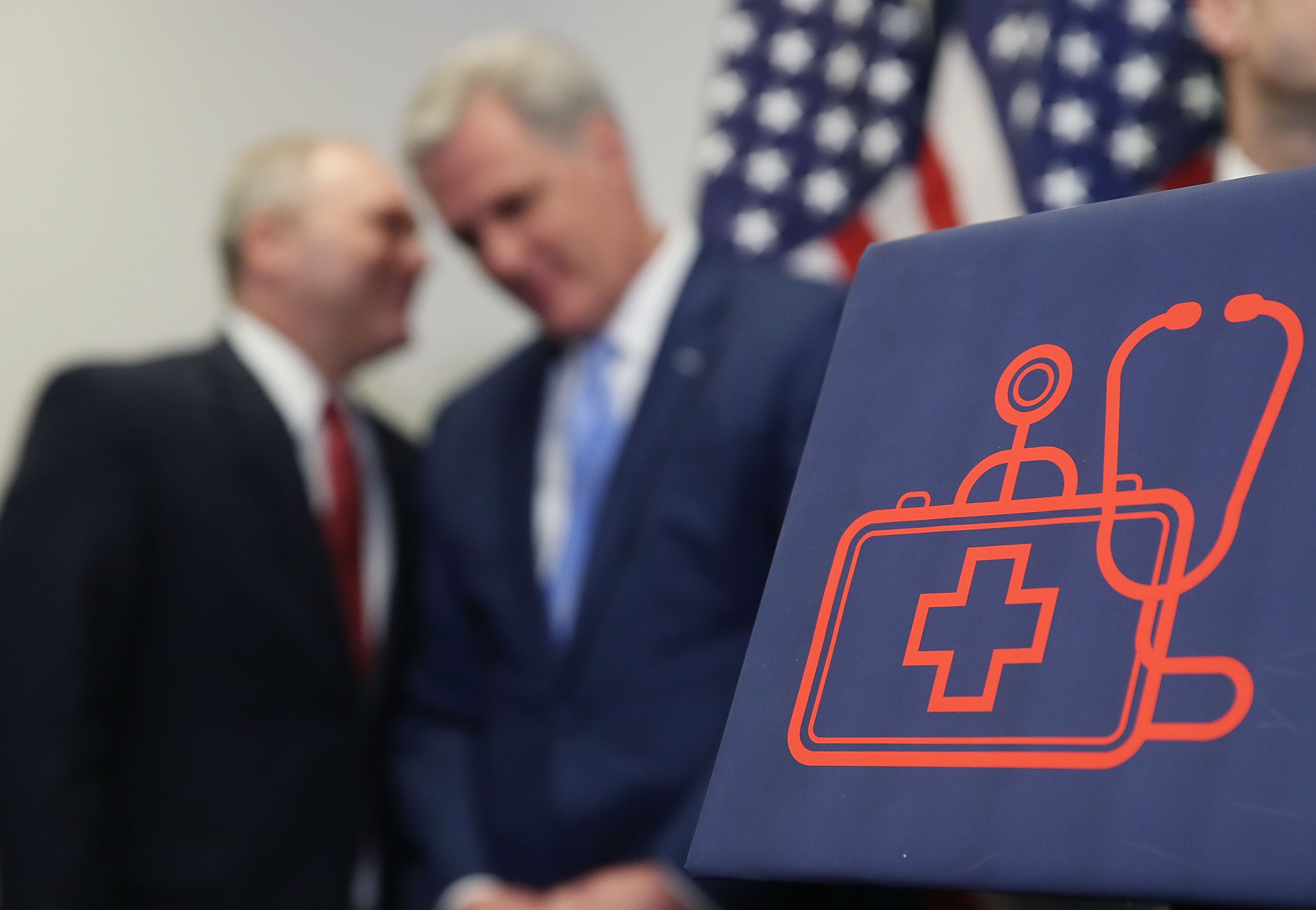How a conservative schism could break American health care
Is the GOP's divide on health care irreconcilable?


A free daily email with the biggest news stories of the day – and the best features from TheWeek.com
You are now subscribed
Your newsletter sign-up was successful
The GOP's ObamaCare replacement plan is universally hated, and rightly so. There are many reasons why the American Health Care Act is terrible, but the fundamental one is that Republicans don't agree about health care. There is a schism — and it has all the absoluteness and fervor of a religious split.
There are essentially two schools of thought on health care within the conservative movement, and they are simply hard to reconcile. And since no one in the Republican Party has shown the leadership required to resolve the split — either by bringing them together or making one side prevail over the other — we get the AHCA mess: a bill that tries to please everyone and thereby pleases no one.
So, what are these camps, and what do they believe about health care?
The Week
Escape your echo chamber. Get the facts behind the news, plus analysis from multiple perspectives.

Sign up for The Week's Free Newsletters
From our morning news briefing to a weekly Good News Newsletter, get the best of The Week delivered directly to your inbox.
From our morning news briefing to a weekly Good News Newsletter, get the best of The Week delivered directly to your inbox.
The first camp, made up of Reagan-Kemp-Ryan-style conservatives, neoconservatives, and other reform conservatives, supported ObamaCare's goal of universal coverage; they just disagreed with the way it went about doing it. They — we, since I am part of this camp — believed that ObamaCare would create a monster by over-regulating and centralizing health care, and more generally by either ignoring or aggravating what we see as the worst features of the American health-care system, namely red tape and third-party payments.
Conservatives in this camp absolutely believe that American society should ensure that everyone can receive critical care, and we believe that it can be accomplished while boosting other conservative goals, such as deregulation and innovation. Indeed, many of us believe that this is the only way to do it sustainably, since the explosion in health-care costs is essentially due to the problems we flag.
The second camp, meanwhile, made up of hard-line conservatives and libertarians, doesn't just dislike ObamaCare's structure, they disagree with its goals. They oppose the idea that government should ensure universal coverage and believe, not implausibly, that in a sufficiently free system, health care would be so affordable that almost everyone would have access to it.
To this camp, reforms that the first camp likes — such as auto-enrolling people into catastrophic plans, or providing them with tax credits to buy plans on the individual market — are really "ObamaCare Lite," since they essentially do the same thing as ObamaCare: Tax Alice to hand out money to Bob to pay for health care.
A free daily email with the biggest news stories of the day – and the best features from TheWeek.com
Of course, to those of us in the first camp, this is nonsense, because what we hate about ObamaCare is the centralization. ObamaCare taxes Alice to hand out money to GigantoCorp, Inc, to give Bob an insurance policy, which only covers the sorts of things that Washington thinks are good for him. Just handing money directly to Bob so he can make his own purchasing decisions would be a huge improvement.
Now, it would be easy to caricature the second camp as heartless and callous, but even though I strongly disagree with it, I won't do it. I have deep sympathy for my friends on the other side of the conservative divide who see an ever-expanding entitlement state and, essentially, Picard-like, draw a line in the sand and say, "This far, no further."
Paul Ryan clearly belongs to the first camp. The problem is that a majority of his caucus belongs to the second camp — or rather, crucially, think (mistakenly) that their constituents belong to the second camp. This is why Ryan's bill tried to please everyone, and thereby pleased no one. But the second camp is actually much, much smaller than the GOP establishment thinks. Donald Trump steamrolled his primary opponents by railing against ObamaCare and promising to replace it, not with some libertarian utopia, but with a system that would "take care of everyone." He also defended his past support for single payer on the GOP debate stage, at seemingly low cost to his nomination.
The one virtue, I thought, of his election, was precisely that it had decisively settled this issue: The GOP now stood for universal health-care coverage, albeit through conservative means. That's where both the base of the party and the party's leader are. The problem is that Trump hasn't shown the leadership and focus needed to turn this political victory into a policy achievement.
And until President Trump takes charge, Republicans will be chasing their tails on the deck of the Titanic.
Pascal-Emmanuel Gobry is a writer and fellow at the Ethics and Public Policy Center. His writing has appeared at Forbes, The Atlantic, First Things, Commentary Magazine, The Daily Beast, The Federalist, Quartz, and other places. He lives in Paris with his beloved wife and daughter.
